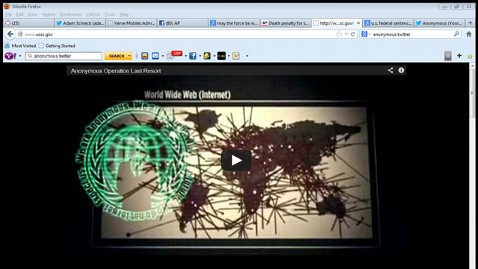Flames raced through a crowded nightclub in southern Brazil early Sunday, killing more than 230 people as panicked partygoers gasped for breath in the smoke-filled air, stampeding toward a single exit partially blocked by those already dead. It appeared to be the world's deadliest nightclub fire in more than a decade.
Witnesses said a flare or firework lit by band members may have started the blaze.
Television images showed smoke pouring out of the Kiss nightclub as shirtless young men who had attended a university party joined firefighters using axes and sledgehammers to pound at windows and walls to free those trapped inside.
Guido Pedroso Melo, commander of the city's fire department, told the O Globo newspaper that firefighters had a hard time getting inside the club because "there was a barrier of bodies blocking the entrance."
Teenagers sprinted from the scene desperately seeking help. Others carried injured and burned friends away in their arms.
"There was so much smoke and fire, it was complete panic, and it took a long time for people to get out, there were so many dead," survivor Luana Santos Silva told the Globo TV network.
The fire spread so fast inside the packed club that firefighters and ambulances could do little to stop it, Silva said.
Another survivor, Michele Pereira, told the Folha de S. Paulo newspaper that she was near the stage when members of the band lit flares that started the conflagration.
Germano Roratto/AFP/Getty Images
"The band that was onstage began to use flares and, suddenly, they stopped the show and pointed them upward," she said. "At that point, the ceiling caught fire. It was really weak, but in a matter of seconds it spread."
Guitarist Rodrigo Martins told Radio Gaucha that the band, Gurizada Fandangueira, started playing at 2:15 a.m. "and we had played around five songs when I looked up and noticed the roof was burning"
"It might have happened because of the Sputnik, the machine we use to create a luminous effect with sparks. It's harmless, we never had any trouble with it.
"When the fire started, a guard passed us a fire extinguisher, the singer tried to use it but it wasn't working"
He confirmed that accordion player Danilo Jacques, 28, died, while the five other members made it out safely.
Police Maj. Cleberson Braida Bastianello said by telephone that officials counted 232 bodies that had been brought for identification to a gymnasium in Santa Maria, a major university city with about 250,000 residents at the southern tip of Brazil, near the borders with Argentina and Uruguay.
An earlier count put the number of dead at 245.
Federal Health Minister Alexandre Padhilha told a news conference that most of the 117 people treated in hospitals had been poisoned by gases they breathed during the fire. Only a few suffered serious burns, he said.
Brazil President Dilma Roussef arrived to visit the injured after cutting short her trip to a Latin American-European summit in Chile.
"It is a tragedy for all of us," Roussef said.
Most of the dead apparently suffocated, according to Dr. Paulo Afonso Beltrame, a professor at the medical school of the Federal University of Santa Maria who went to the city's Caridade Hospital to help victims.
Beltrame said he was told the club had been filled far beyond its capacity during a party for students at the university's agronomy department.
Survivors, police and firefighters gave the same account of a band member setting the ceiling's soundproofing ablaze, he said.










